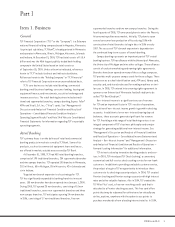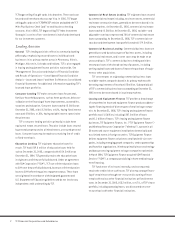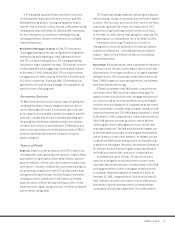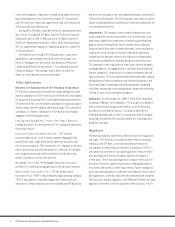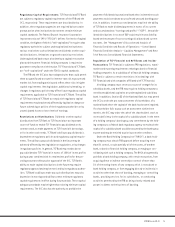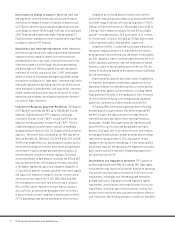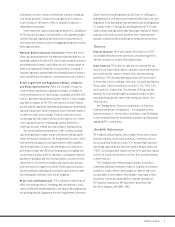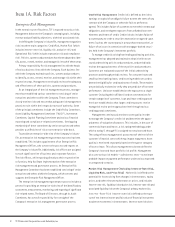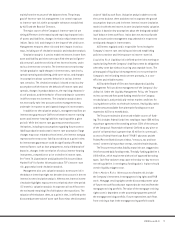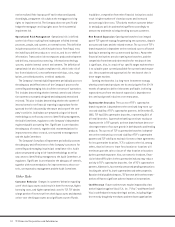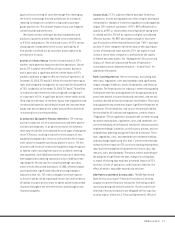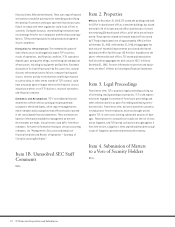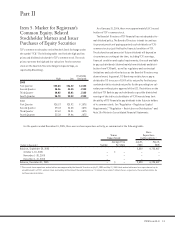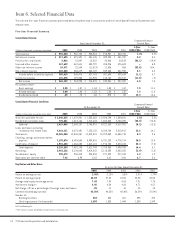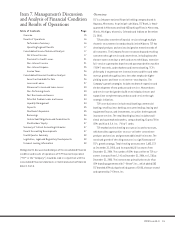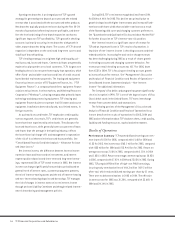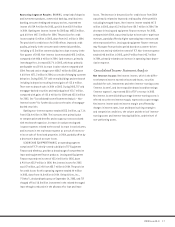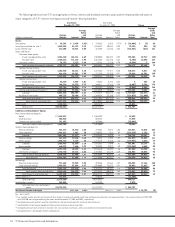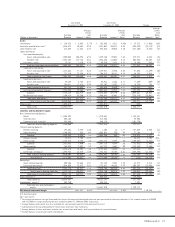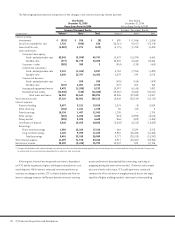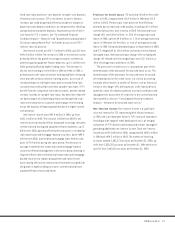TCF Bank 2005 Annual Report Download - page 31
Download and view the complete annual report
Please find page 31 of the 2005 TCF Bank annual report below. You can navigate through the pages in the report by either clicking on the pages listed below, or by using the keyword search tool below to find specific information within the annual report.
112005 Form 10-K
against Visa concerning its card interchange fees challenging
the level of interchange fees and prohibitions on merchants
imposing surcharges on customers using cards to purchase
goods and services. The ultimate impact of any such litigation
cannot be predicted at this time.
Merchants are also seeking to develop independent card
products or payment systems that would serve as alternatives
to TCF Visa card products. The continued success of TCF’s various
card programs is dependent on the success and viability of
Visa and the continued use by customers and acceptance by
merchants of its cards.
Declines in Home Values Declines in home values in TCF’s
markets could adversely impact results from operations. Like all
banks, TCF is subject to the effects of any economic downturn,
and in particular, a significant decline in home values in TCF’s
markets could have a negative effect on results of operations. At
December 31, 2005, TCF had $5.1 billion of consumer home equity
loans with a weighted-average loan-to-value ratio for the portfolio
of 73%. In addition, at December 31, 2005, TCF had $770.4 million
in residential real estate loans with a weighted-average loan-
to-value ratio of 51%. A significant decline in home values would
likely lead to a decrease in new home equity loan originations and
increased delinquencies and defaults in both the consumer home
equity loan and residential real estate loan portfolios and result
in increased losses in these portfolios.
Leasing and Equipment Finance Activities TCF’s leasing
activity is subject to risk of cyclical downturns and other adverse
economic developments. In an adverse economic environment,
there may be a decline in the demand for some types of equipment
which TCF leases, resulting in a decline in the amount of new
equipment being placed in service as well as the decline in equip-
ment values for equipment previously placed in service. TCF, like
all owners and lessors of commercial equipment, may be exposed
to liability claims resulting from injuries or accidents involving
that equipment. Such liability has been most acute in states that
have adopted laws imposing statutory vicarious liability on leas-
ing companies for any injuries or property damage caused by
motor vehicles they owned and leased. In 2005, a federal statute
was enacted that significantly reduced a leasing company’s
exposure to that risk. TCF seeks to mitigate its overall exposure
to lessor’s liability risk by requiring all lessees to furnish evidence
of liability insurance prior to lease inception and to maintain that
insurance throughout the term of the lease, and through its own
insurance programs.
Income Taxes TCF is subject to federal and state income tax
regulations. Income tax regulations are often complex and require
interpretation. Changes in income tax regulations could negatively
impact TCF’s results of operations. If TCF’s REIT affiliate fails to
qualify as a REIT, or should states enact legislation taxing these
or related entities, TCF will be subject to a higher consolidated
effective tax rate. The REIT and related companies must meet
specific provisions of the Internal Revenue Code (“IRC”) and state
tax laws. If these companies fail to meet any of the required pro-
visions of federal and state tax laws, TCF’s tax expense could
increase. Use of these companies is and has been the subject
of federal and state audits. See “Management’s Discussion and
Analysis of Financial Condition and Results of Operations –
Consolidated Income Statement Analysis – Income Taxes” for
additional information.
Rules and Regulations New or revised tax, accounting, and
other laws, regulations, rules and standards could significantly
impact strategic initiatives, results of operations, and financial
condition. The financial services industry is extensively regulated.
Federal and state laws and regulations are designed primarily to
protect the deposit insurance funds and consumers, and not nec-
essarily to benefit a financial company’s shareholders. These laws
and regulations may sometimes impose significant limitations on
operations. These limitations, and sources of potential liability
for the violation of such laws and regulations, are described in
“Regulation.” These regulations, along with the currently existing
tax and accounting laws, regulations, rules, and standards, con-
trol the methods by which financial institutions conduct business;
implement strategic initiatives, as well as past, present, and con-
templated tax planning; and govern financial disclosures. These
laws, regulations, rules, and standards are constantly evolving
and may change significantly over time. Current events that may
not have a direct impact on TCF, such as accounting improprieties,
may result in the adoption of substantive revisions to laws, reg-
ulations, rules, and standards. The nature, extent, and timing of
the adoption of significant new laws, changes in existing laws,
or repeal of existing laws may have a material impact on TCF’s
business, results of operations, and financial condition, the
effect of which is impossible to predict at this time.
USA Patriot and Bank Secrecy Acts The USA Patriot and
Bank Secrecy Acts require financial institutions to develop
programs to prevent financial institutions from being used for
money laundering and terrorist activities. If such activities are
detected, financial institutions are obligated to file suspicious
activity reports with the U.S. Treasury Department’s Office of


